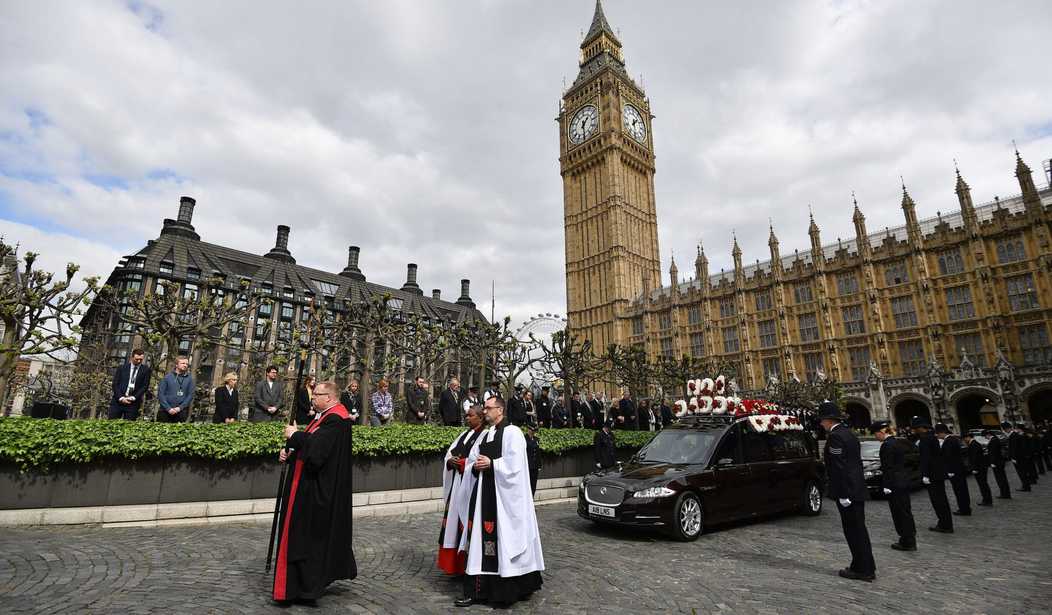The always thoughtful, and pessimistic, Theodore Dalrymple– the pen name of a British writer named Anthony Daniels — paints a gloomy view of Britain’s future in this piece for Law and Liberty. His theme is the creeping acceptance of statism in Britain — a process ongoing since the Brits chucked Churchill out on his ear in 1945 — and the concomitant loss of thrift, ambition, and desire for achievement that inevitably attend “socialization.”
The fact is that Britain is unlikely to be able to take any advantage of life outside the European straitjacket because its own political class is itself in favour of straitjackets that are no better, and quite possibly worse than, the European ones. The present Prime Minister, Theresa May, is very much a statist, indistinguishable from European social democrats, and the leader of the opposition, Mr Corbyn, who might well be the next Prime Minister, is an unapologetic admirer of Hugo Chavez. It is hardly to be expected that foreign investors will place much trust or confidence in an isolated country whose next government might very well weaken property rights, impose capital controls and increase corporate taxation in favour of supposed social justice. It would not take very long to turn Britain into a northern Venezuela: a Venezuela without the oil or the tropical climate.
Britain has enormous cultural problems, perhaps only to be expected in a country in which more than fifty per cent of children are born out of wedlock and twenty per cent do not eat a meal with another member of their household more than once every two weeks. A dangerously high and perhaps unsustainable proportion of the population is unfitted for productive life in a modern economy, having attained an abysmally low educational level despite (or because of?) considerable state expenditure. This section of the population is not merely indifferent to refinement of any kind – intellectual, aesthetic or of manners – but actively hostile to it. Similarly, it is not merely not anxious to learn, it is anxious not to learn.
This explains why Britain has persistently imported labour from Eastern Europe to perform tasks in its service industries that ordinarily one might have expected its large fund of indigenous non-employed people to perform. The fact is, however, that though these tasks require no special skills, they did require certain personal qualities such as reliability, politeness, and willingness to adapt: and these the eligible local population lack entirely. No hotel-keeper, for example, would consider using British labour if he could get foreign.
Sad commentary indeed. But if you follow the author’s work regularly, you will know this is nothing new — as a former prison doctor and psychiatrist, Dalrymple has charted the descent of the Britons from Anglo-Saxon imperialists to helpless, violent members of the underclass (just as forecast in Anthony Burgess’s A Clockwork Orange); in his view, this is now the end game as the sun finally sets on what used to be Britain.
These problems do not originate from Britain’s membership of the European Union, nor will they be solved by exit from the Union. They can be solved only by something more resembling a religious revival than by any likely government action. But expecting a population to bethink itself while simultaneously being offered political solutions that require no effortful cultural change is unreasonably optimistic… Therefore, I have seen the future of London, and it is Caracas – or very might be.
The Third World is the Third World for a reason; why the First World should wish to join it is one of “liberalism’s” great triumphs.









Join the conversation as a VIP Member